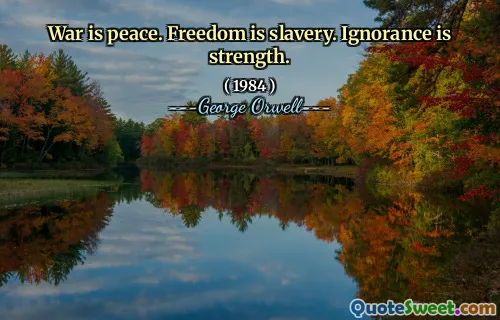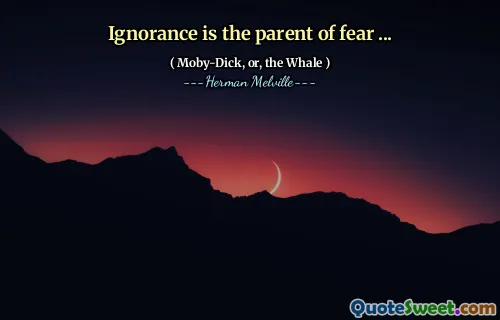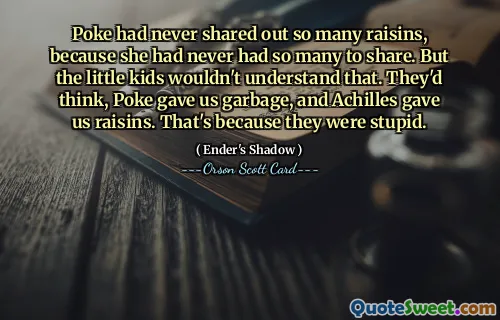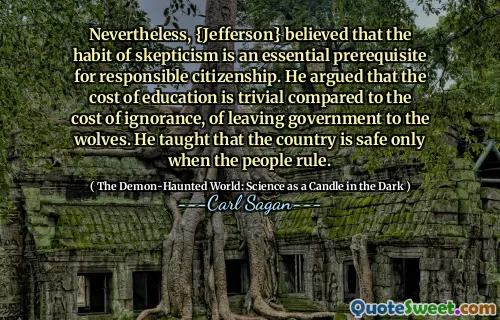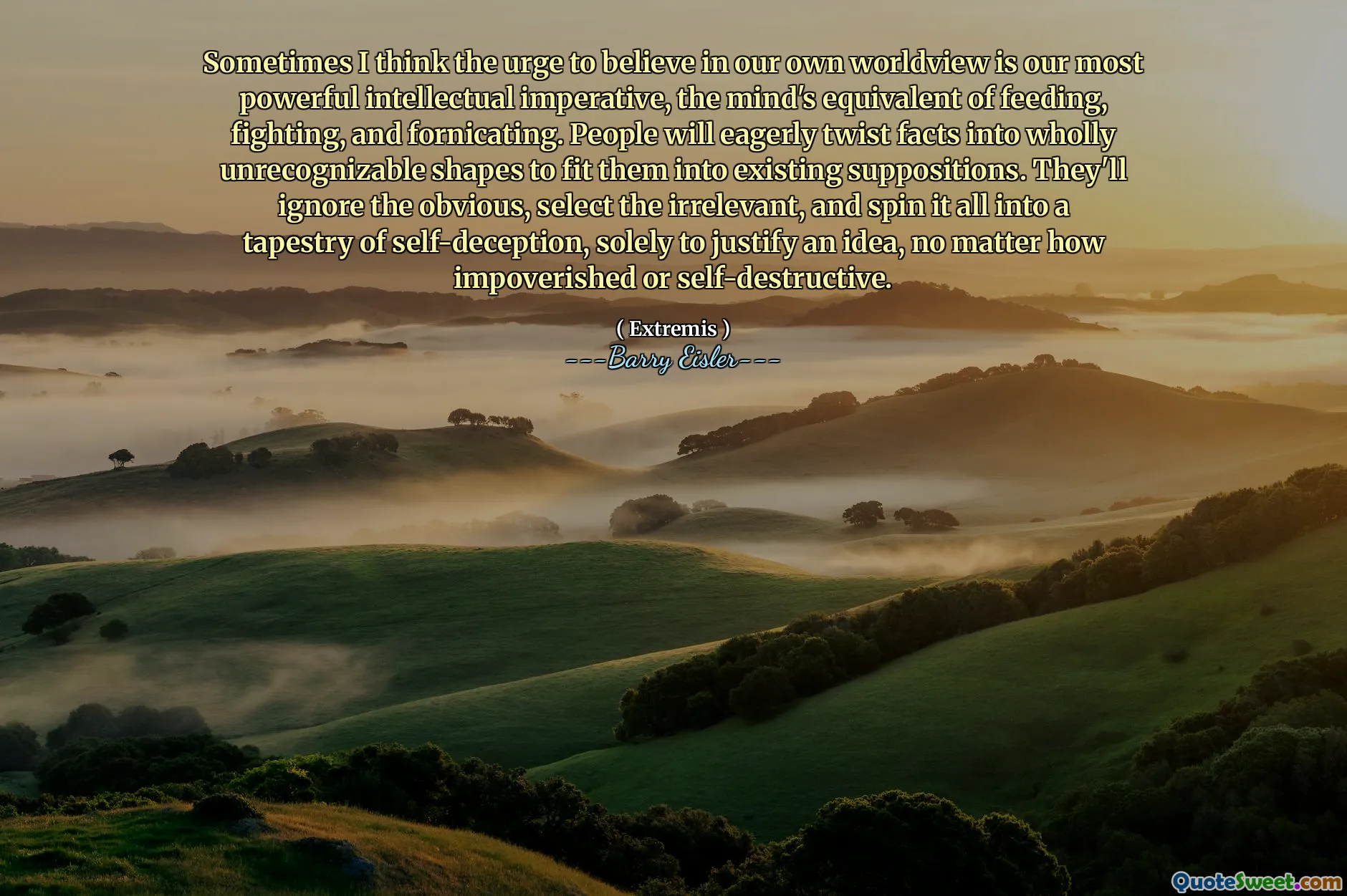
Sometimes I think the urge to believe in our own worldview is our most powerful intellectual imperative, the mind's equivalent of feeding, fighting, and fornicating. People will eagerly twist facts into wholly unrecognizable shapes to fit them into existing suppositions. They'll ignore the obvious, select the irrelevant, and spin it all into a tapestry of self-deception, solely to justify an idea, no matter how impoverished or self-destructive.
This quote delves into the profoundly ingrained human tendency to cling to our personal beliefs, often at the expense of truth. It highlights how the need to reinforce our worldview can overshadow critical thinking and objective analysis. The analogy comparing this urge to fundamental human drives like feeding, fighting, and fornicating emphasizes its primal nature—something wired deep within us that drives us to seek affirmation of our existing ideas. The process of twisting facts, disregarding the obvious, and cherry-picking information demonstrates how cognitive biases and emotional investments influence our perception of reality. Such behaviors can lead us to craft a distorted version of the truth that supports our self-concept or convictions, even when these beliefs are unfounded or harmful. This self-deception serves as a psychological refuge, protecting our ego and identity from challenges that threaten our worldview. Recognizing this tendency is a crucial step toward intellectual honesty, as it enables us to approach information with humility and openness. It prompts us to question our assumptions and to be cautious of confirmation biases that distort our judgment. In a broader societal context, this human predisposition can lead to polarization, misinformation, and conflict, as groups entrench themselves further into their own narratives. Self-awareness of these tendencies can foster more thoughtful discourse and progress, helping us prioritize truth over comfort, reality over illusion, and understanding over self-justification.

